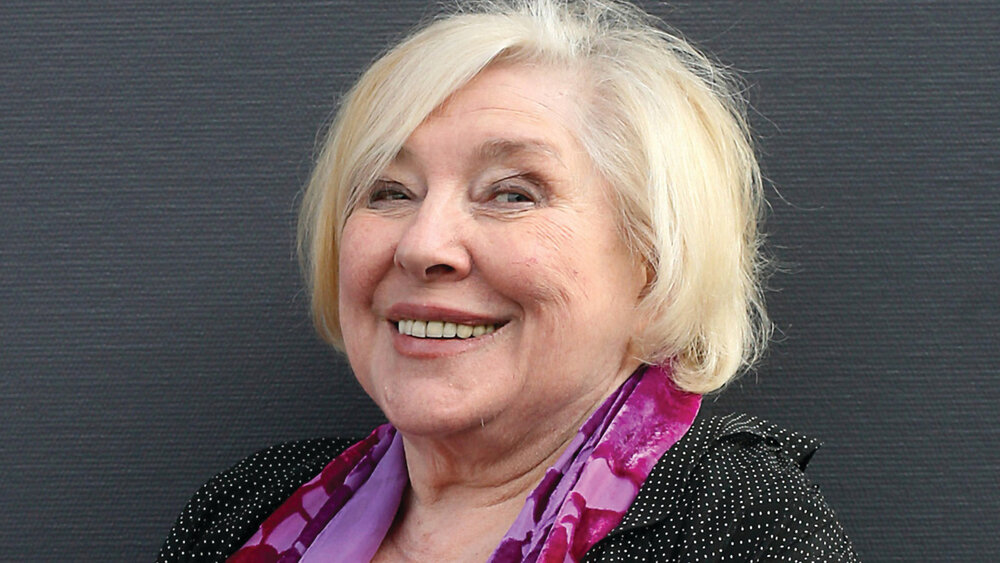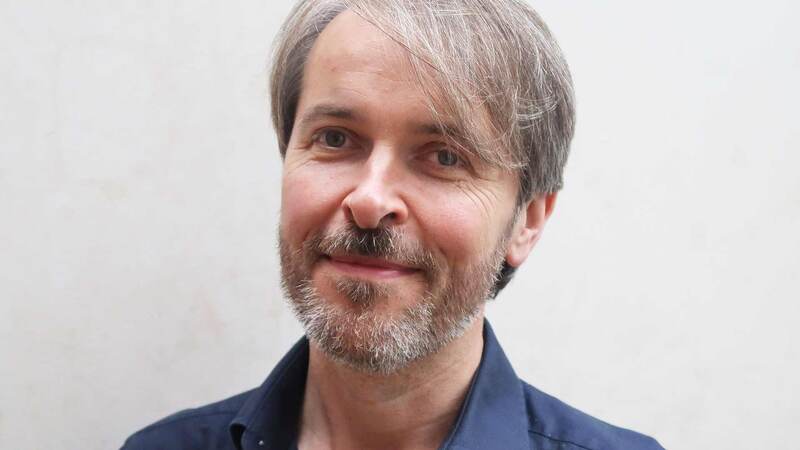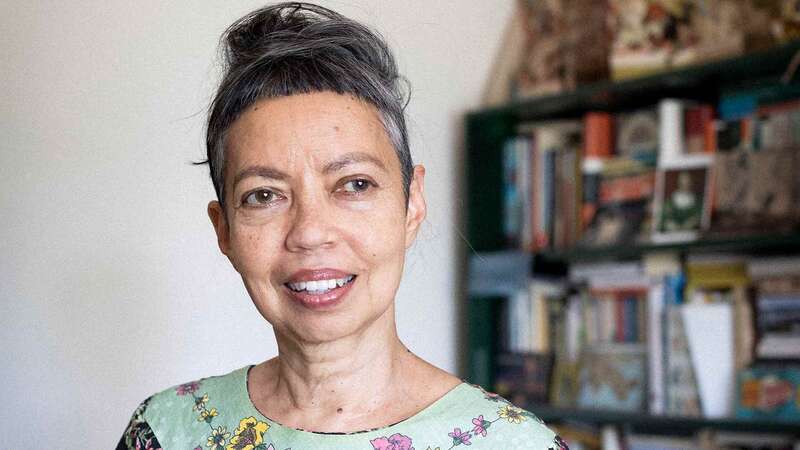You are viewing your 1 free article this month. Login to read more articles.
Fay Weldon | 'We think we are women, but are we women?'
Thirty-three years after she penned feminist classic The Life and Loves of a She Devil—a black comedy about a woman driven to elaborate, grotesque and ultimately triumphant revenge on the husband who threw her over for a more attractive model—Fay Weldon has produced a sequel.
Never a stranger to controversy, the author made waves when news of Death of a She Devil (Head of Zeus, April), which has a transgender theme (of sorts), first emerged last year, by telling the Sunday Times that men choose to change gender because it is the only way they have “of fighting back against the natural superiority of women”.
Interviewed at her Dorset home, Weldon—now in her mid-80s—says she had been repeatedly asked to write a sequel to her 1983 novel, but had never been able to think of a plot before. Then Germaine Greer made her controversial claim that a post-operative transgender woman “can’t be a woman”, in comments condemned as “grossly offensive” by the trans community, and suddenly Weldon had a theme. “I thought, ‘Well, that’s rather interesting. We think we are women, but are we women? Gender becomes rather fluid. This is worth investigating’.”
Revisiting She Devil, written in the heyday of the women’s movement, also offered her the chance to reflect on the development of feminism over the decades. “There has been enough time to start a movement and see where it’s gone. Women are what they are, and haven’t much changed. But feminists have.”
Thirty years on, the original characters are all there. Ferocious anti-heroine Ruth Patchett, the She Devil, is now the elderly director of the Institute for Gender Parity, and reaping what she has sown: she enjoys her glorious victory in her battle of the sexes, but the children she abandoned won’t talk to her and the extensive plastic surgery she underwent to look like her love rival is now rather worse for wear. Her husband Bobbo is ancient and incapacitated, but as sexist as ever. Meanwhile Mary Fisher, the romantic novelist whose affair with Bobbo sparked Ruth’s great wrath, also makes an appearance—as a ghost, having died in the first book.
The crux of the new novel comes with the appearance of Valerie Valeria, a perky young assistant with a PhD in feminist studies, who is simply brimming with self-confidence, and quickly starts to take over the running of the institute. To the She Devil’s alarm, Valerie is of a generation that believes men must join in the feminist cause, and her big idea is a “Widdershins Walk”, which will see the sexes come together in a procession around the High Tower that houses the institute, to celebrate its 40th anniversary.
Valerie is keen to involve Ruth’s handsome grandson Tyler in this enterprise, and soon finds herself falling for him. But being a lesbian, she thinks she would prefer it if Tyler were, in fact, Tyla. Amiable Tyler, eager to please, starts to think that a transition to womanhood might not be a bad idea.
Weldon describes Valerie as“a feminist who has never been persecuted by a man”, saying: “Most young feminists have never been persecuted by a man. They do the persecuting—and the men do the trembling.”
Valerie is in her own way as monstrous as Ruth was. “She has a sort of wonderful energy, and the kind of absolute understanding that she’s perfect and everything she says is right and everything she wants, she deserves,” observes Weldon with amusement. “She’s incredibly charming and nice and lively, as the young are, and she leaps around in her skinny cardie, and she is absolutely ruthlessly ambitious. If she decides she’s a lesbian, anybody she fancies must be a woman.”
Men have changed enormously over the past three decades, thanks to the work of women, and women now are strong enough not to have any special pleading made for them, she believes. In fact, there may be almost too much female self-esteem around. “Sometimes when I talk to my students [Weldon teaches at Bath Spa University], I think we should be teaching them low self-esteem. What makes it difficult to teach them is their high self-esteem. If they had a bit of low self-esteem, or a bit of modesty...enough of this sharp-elbowing other people out of the way.” She chuckles quietly: “Though I love my students dearly, I really do.”
Weldon and her third husband Nick have seven sons between them. She says: “We know that if a woman has daughters, she complains about the awfulness of men, because they are so awful to her daughters; if you have sons, you complain about the awfulness of women because you know how young men suffer especially at the hands of young women. When young women turn into older women they suddenly become much more sensible and are actually quite nice to men.”
Tyler is, she says, “just a young man who is suffering from everything that young men do suffer from nowadays, which is a lack of understanding what their existence is about. There’s nobody to take care of. What men seem to want to do is look after helpless women and children. If you can take some hormones and wear pretty dresses, and nothing much changes between being a man and a woman, then Tyler decides he might as well be a woman.”
She says she agrees with Greer’s view on transgender, but then seems to contradict herself: “In a man’s brain, the circuits are different—but oddly enough, they can change, one realises. Men and women are not fixed as men and women, nothing is fixed and the wiring of the brain keeps changing. Rather disconcerting for those of us who always thought there was a great difference, but there’s not.” She adds: “One doesn’t want not to acknowledge the real seriousness of transgender people who do have this real basic sense of being in the wrong body, which obviously some people are. I’ve known men who have changed into women and they make much better women than they ever did men— but they do talk about it a lot.”
I’ve known men who have changed into women and they make much better women than they ever did men— but they do talk about it a lot
Weldon says it was originally her publisher who defined her as a feminist; she thought she was just writing about the world as she saw it. Her work has been controversial on all sides: in earlier decades men would walk out of the room when she came in, so offended were they by her books; equally, her 1980 novel Puffball incensed feminists by arguing that women are at the mercy of their hormones.
Does the controversy worry her? “Actually, I just keep going [on with my writing]. So by the time people are hating the last book, I am already busy with the new one, so I just think, ‘Oh, that old thing, I’m not interested. I’m interested in what I’m doing now.’”
Photo credit: Sebastian Willnow










